BBC Wales presenter Lucy Owen's eyesight saved by routine test
- Published
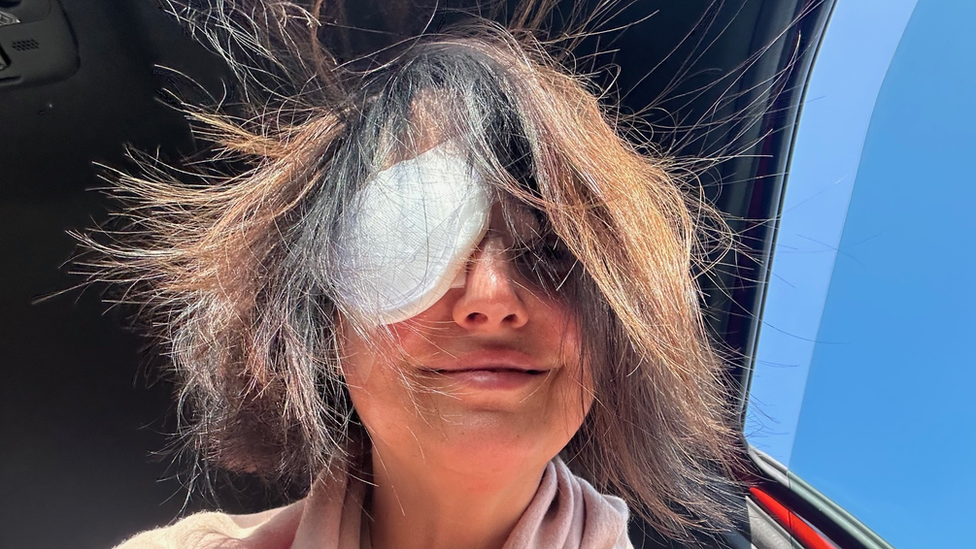
For a week after surgery, I had to lie on my side
I have a confession to make.
I haven't always been to the opticians as regularly as I should, despite being a devoted contact lens wearer since the age of 16.
I often forgot to book the annual check-up before realising it had been three years since my last appointment. I won't be doing that any more.
That's because what I thought was just another check-up led to emergency surgery that saved the sight in one of my eyes.
In June, I noticed I'd started getting occasional white flashes in my right eye, particularly when I looked to the side.
It didn't happen that often, perhaps once or twice a day, and although it struck me as a little unusual, I didn't rush to get it checked out.
I googled the symptoms - it looked like something that can happen with age, or possibly a detached retina.
With my 52nd birthday around the corner, I rolled my eyes and assumed it must be another one of the joys of getting older.
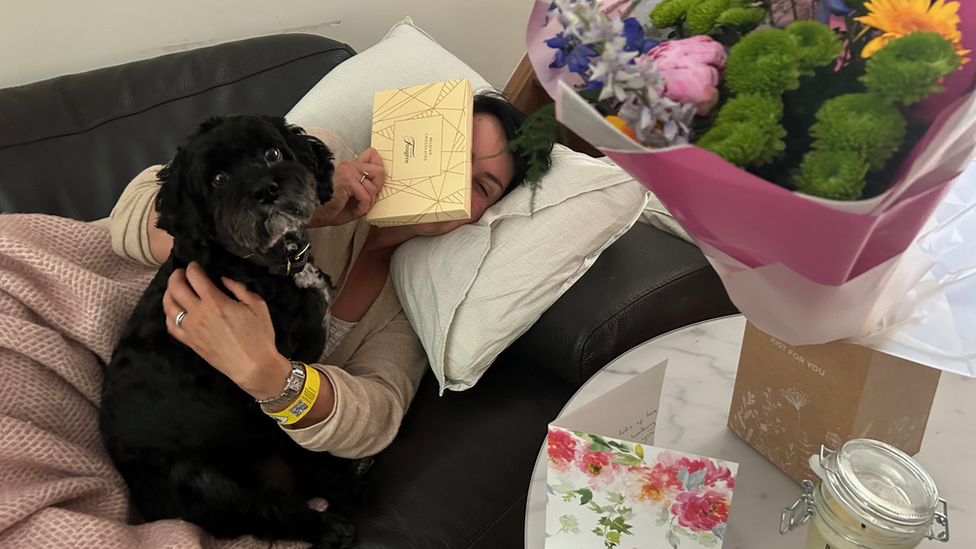
My dog Buddy was a welcome companion during my recovery
A few weeks later, with the flashes continuing randomly, I realised I'd managed to lose both my pairs of specs.
Vaguely concerned about wearing my contact lenses too much, I booked an appointment at the opticians on my local high street to invest in some new glasses and thought I'd mention those silly white flashes at the same time.
Settling into the optometrist's, I still had no real concerns.
Usual failure to read any of the letters on the chart? No biggie.
But I noticed the optometrist kept returning to my right eye, shining in a bright light and looking inside with a strong magnifying lens.
He explained to me that my retina was in the process of detaching and those flashes had been a sign.
He told me there was a chance the retina could detach very quickly and, once this had happened, nothing could be done to repair it. I would lose my sight in that eye.
It was a shock.
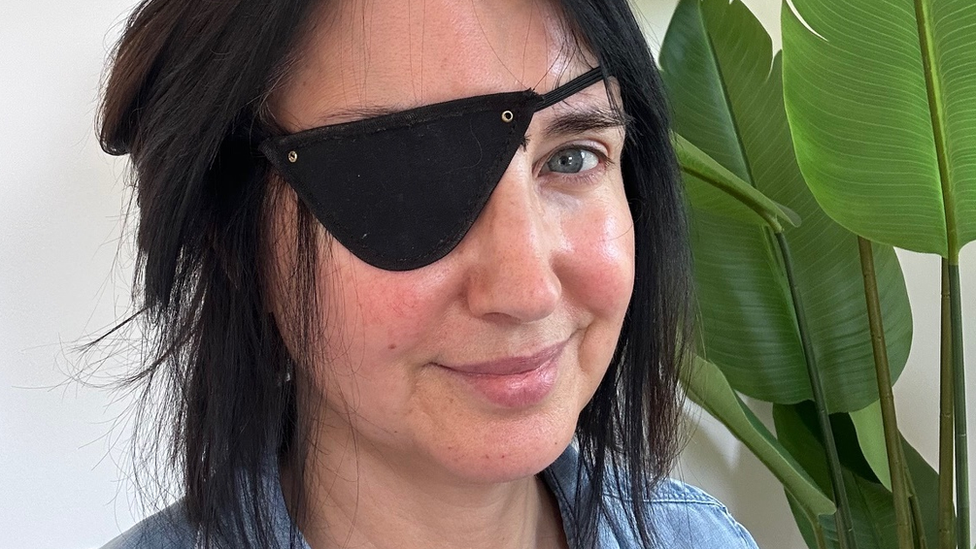
It took several months for me to recover fully after surgery
One minute I was looking forward to a new pair of glasses: the next, I was in danger of losing my sight.
The optometrist called the hospital and made an emergency appointment. I was told I should expect to have surgery the next day.
My mind was racing. It was all so hard to process.
If it didn't work, how would I cope? Would I still be able to work, read the autocue? Faced with the prospect of losing my sight in that eye, suddenly the vision that I'd always taken for granted seemed incredibly precious.
The operation took about 40 minutes and I was in and out of hospital in a few hours. I had to spend the following week lying on my side, and then it was a waiting game for my vision to return to normal.
As it turned out, that would take about three months. I felt disorientated and unable to go outside for the first six weeks or so. But as my vision improved, so did my confidence to get back on my feet and out and about.
The main thing is my vision did come back.
All I can think now is how lucky I am. How fortunate it was that I went to the opticians when I did and they were able to act so quickly.
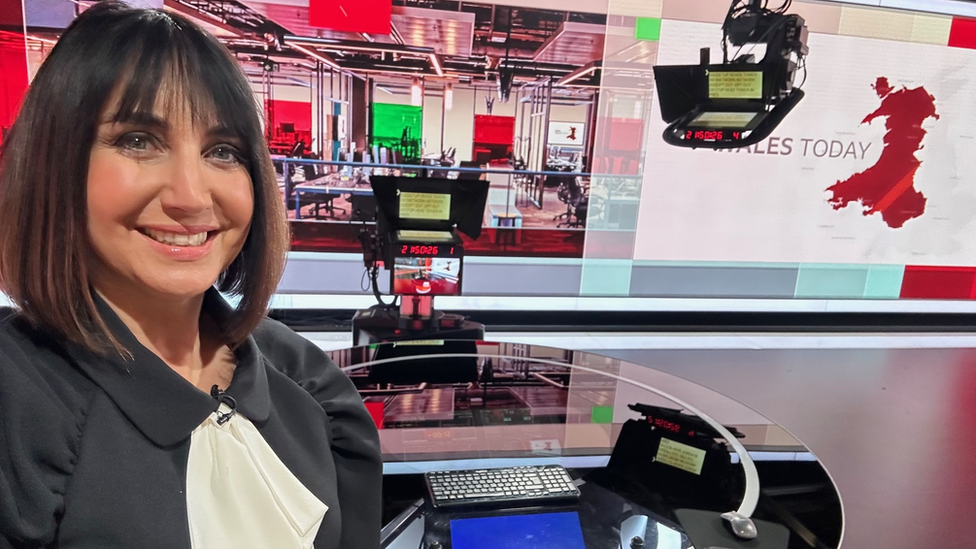
Back to work: I was able to return to presenting earlier this month
What is a detached retina?
The NHS website says, external that when the thin layer at the back of the eye (retina) becomes loose, it must be treated quickly.
Symptoms of a detached retina included floaters or flashes of light in the eye, a dark "curtain" or shadow, or blurred vision or other changes to sight.
The NHS says surgery will usually stop vision deteriorating, and "most people are eventually able to return to all their normal activities".
The Welsh government is now launching a campaign to encourage people to get an eye health check.
From 20 October, optometrists on the high street will be able to treat and monitor a greater range of eye conditions. The aim is to help ease the pressure on hospital eye services and reduce the waiting times and increased demand for eye care.
It means patients should be able to get their eyes checked more quickly, conveniently and closer to home.
The main change is around prescriptions. Optometrists who have gained extra qualifications will be able to prescribe medication, such as steroids and antibiotics used to treat common eye conditions like uveitis and conjunctivitis.
Health Minister Eluned Morgan acknowledged NHS eye services were stretched.
"The sooner we can catch issues the better and the pressure is so great on hospital eye care we looked around and realised there's a whole army with the incredible skills needed to help us out within the community," she said.
Eye checks can also identify more serious health conditions, such as diabetes, glaucoma and myopia. If people have regular checks it is hoped they may be detected earlier and prevented.
The Welsh Conservatives said with 75,000 people waiting beyond the target time for eye care, the reforms need to deliver for patients.

BINGE-WORTHY BOX SETS: Everyone is talking about these award-winning dramas...
WYNNE'S WELSH 70S: Nostalgia and footage from Wynne Evans' favourite decade

- Published1 August 2023
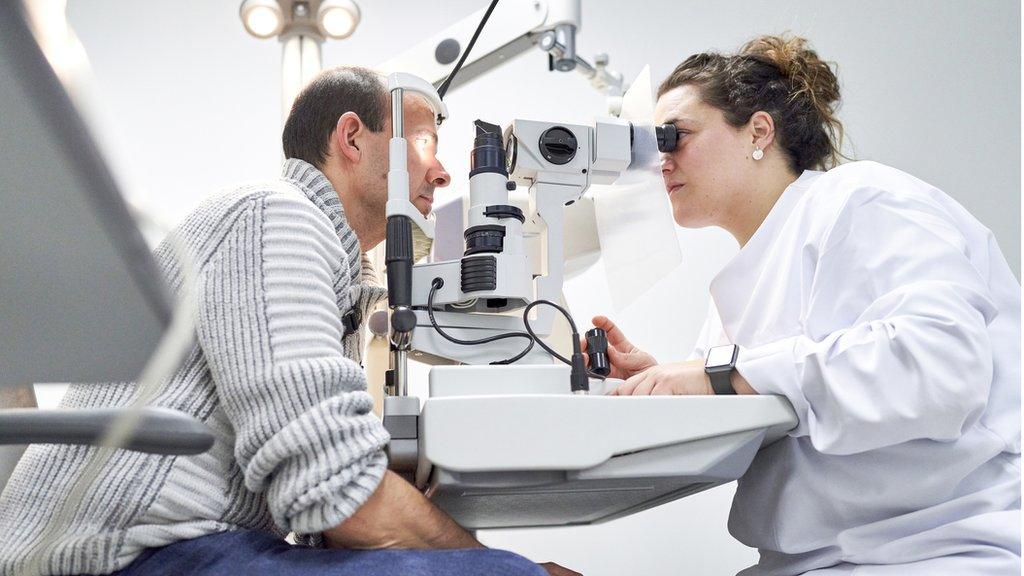
- Published24 December 2022

- Published8 May 2022
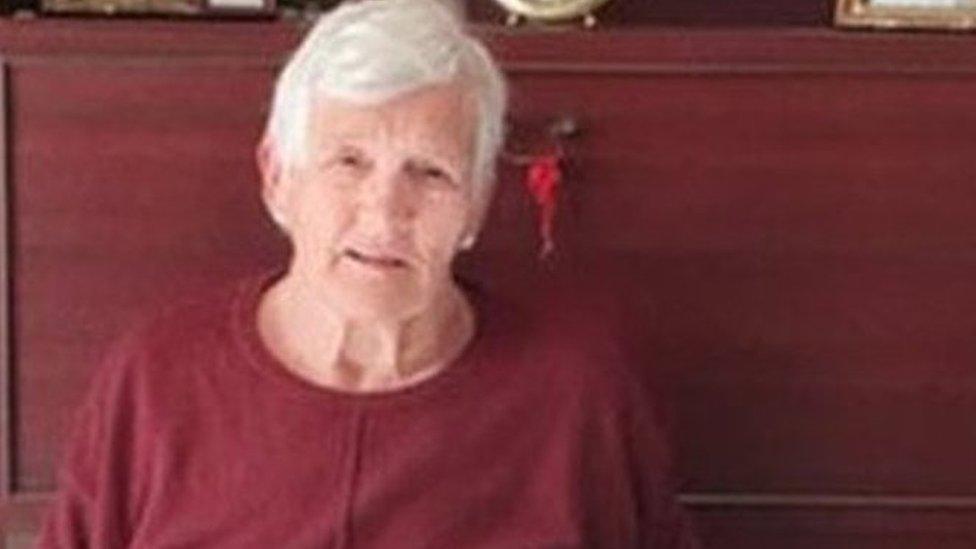
- Published26 November 2022
